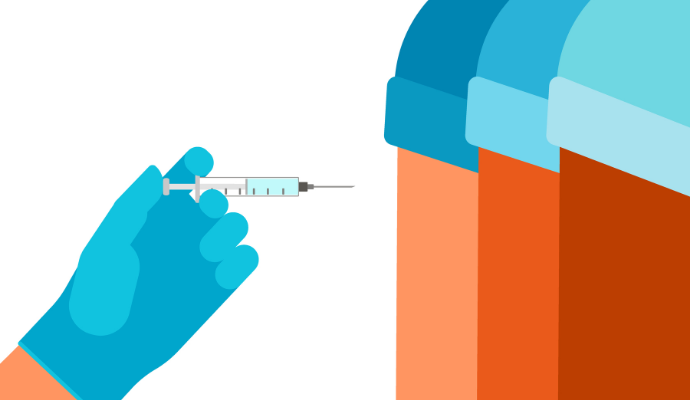WHO Grants Emergency Use to AstraZeneca’s COVID-19 Vaccine
AstraZeneca’s COVID-19 vaccine can be administered at a four to 12-week interval to individuals 18 years of age and older, including those over 65.

Source: Getty Images
- The World Health Organization (WHO) recently granted AstraZeneca’s COVID-19 vaccine emergency use listing (EUL) for active immunization to prevent coronavirus in individuals 18 years of age and older, including individuals over 65.
The authorization of COVID-19 Vaccine AstraZeneca and COVISHIELD, manufactured by the Serum Institute of India (SII), allows for global access to the vaccine during the pandemic.
At the end of December, India's drug regulator approved COVISHIELD, the local name for AstraZeneca’s vaccine developed in the UK. Currently, the vaccine is being manufactured locally by the SII, the world's largest vaccine manufacturer.
Under the EUL, two doses of the COVID-19 Vaccine AstraZeneca can be administered at a four to 12-week interval, as advised by the WHO’s Strategic Advisory Group of Experts on Immunization (SAGE).
WHO based its approval on pooled analysis from the Phase 3 trials conducted by Oxford University of 12,390 participants aged 18 years and older who were infected with COVID-19 from the UK, Brazil, and South Africa.
In the trials, the first dose of COVID-19 Vaccine AstraZeneca elicited vaccine efficiency of 76 percent. After the second dose, protection was maintained.
With an inter-dose interval of over 12 weeks, vaccine efficiency rose to 82 percent, AstraZeneca said. Notably, there were no severe cases and no hospitalizations more than 22 days after the first dose.
Experts also recommended use of COVID-19 Vaccine AstraZeneca in countries where new variants, including the South African B1.351 variant, are prevalent.
“Today’s approval endorses that the vaccine can be used to help protect populations across the world, including adults over 65 years and in countries where different variants of the SARS-CoV-2 virus are in circulation,” Pascal Soriot, chief executive officer of AstraZeneca said in the announcement.
“This is a huge step towards ensuring global access to our vaccine and helping us fulfill our public health commitment to broad and equitable access at no profit during the pandemic,” Soriot continued.
SII is currently producing over 50 million doses of AstraZeneca’s vaccine a month. In June 2020, AstraZeneca announced a sub-licensing agreement with the SII to manufacture and supply up to one billion doses of its vaccine to low and middle-income countries.
Under the recent authorization, the companies will work with the COVAX Facility, the vaccine pillar of the Access to COVID-19 Tools (ACT) Accelerator, to begin supplying the vaccine globally.
The majority of the doses will be allocated in low and middle-income countries. There will be over 300 million doses of the vaccine made available to 145 countries through COVAX in the first half of 2021.
“We have been waiting for this final milestone. I am happy and relieved that with the WHO's EUL we will be able to start the deliveries to African and other low and middle-income countries immediately. Countries with a large population must be protected as soon as possible,” said Adar Poonawalla, chief executive officer of the SII.
At the end of September, 64 higher-income economies from the European Commission joined COVAX and will acquire vaccine doses on behalf of 27 European members plus Norway and Iceland.
Although at the time the US was not on the list of countries joining the initiative, NIAID Director Anthony Fauci, MD, said in a January speech that the US will join COVAX under President Biden.
The move will significantly help to support global health and global health security and will efforts for COVID-19 vaccines, therapeutics, diagnostic distribution, access to care, and research and development.
In addition to retaining membership with the WHO, the US also intends to fulfill its financial obligations to the organization.
For example, the US will work with partners to strengthen and reform WHO, which officials say will help to bolster the international COVID-19 response and address its impact on people, communities, and health systems around the world.
